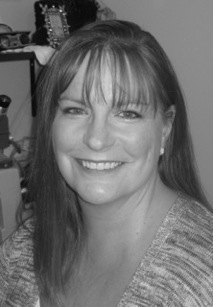Articles and News
A Good Game of Human Chess Helps Keep Staff Engaged | July 17, 2013 (0 comments)

Burlington, NJ— The best work advice I ever received was, “Think of something you truly love to do, something you would do for free, and then find a way to make a good living at it.”
Keeping the workplace flexible and the associates interested and not burned out is what keeps a staff great—and keeps a great staff. It also improves productivity and sales.
Every few years I suggest playing what I call “human chess.” First you have to have a good outline of the jobs “available” in your company: both filled and unfilled. Then I sit down with my team one on one to see if they are still enjoying the jobs they have. It is imperative that this is done in a non-threatening manner; i.e., simply “I’m taking a temperature and just making sure you’re happy.”
Then, take a look at the skills of your employees to see if they have grown out of their previous job description and are bored—because a bored associate tends to be an unproductive associate. If they have been receiving training (GIA, AGS, etc.)—and I hope to heck they have, but that’s for another article—they might have a whole new set of skills they bring to the table, vs. the ones they had when they were hired. Have your associates write new resumes, and see if they aren’t better suited to another role. Maybe they have grown to be more interested in back office support roles, or maybe the person in the back office wants to be out front assisting clients. There have been a few cases where the person hired for a non-client relations job is a “people person,” born with what I term “that freaky retail gene” and would be happier out front. They just need product training to be an amazing sales associate.
Take a look at the personalities of the associates and see what would make them happy on any given day. Understand personalities can change with time: the woman you hired 10 years ago has been shaped by 10 years of life experiences and might not be the same “person” she was when you hired her. When asked what the best part of her day is, she might tell you “in the back office calling special orders and sourcing diamond calls,” whereas 10 years ago her answer would have been “assisting clients.” Food for thought.
Cross training within a company is also a great way to fulfill an associate’s needs to be happy in the work place. Just because they were hires to be a diamond sales associate doesn’t mean they can’t be trained to assist in the diamond inventory office.

Author Marybeth Kroh
Here is a blueprint for “human chess,” and questions to ask your associate (and yourself!)
1. Picture in your mind the ideal day at work. What happens? Who is there? What are you doing? What is so great about it?
2. What day in the last year at work have you had a really good time—a day would you have worked for free? What were you doing? What kind of day was it: a special event? Inventory? (don’t laugh: these people do exist).
3. Less energy is needed when what you are doing is fun. Think about special event days, or days you find appealing and productive, when you come in jazzed and ready to be really busy and have fun. Your mood is up and energy is flowing.
4. Another thing for you and your associates to look at is a list of the characteristics of the people they most enjoy working with. It just might be the people they work with that they enjoy, not the job or task itself. So if you ask 10 people what they like about their position and they answer, “ I love working with Vera,” look at the personality traits, characteristics, and energy she brings to the group, and try to emulate it within the group.
Remember, people want to go to a job they love. When we come to work ready to play its bound to be a better day. A few thoughts to bear in mind—they may be cliché’s, but they are true: one, this is your life, not a dress rehearsal; two, life is brief, do that which makes you happy, and three, make it a goal to say “I have never ‘worked’ a day in my life. I did what I chose to do and loved it.”
I’m not suggesting we all leap out of bed singing with the birds like Snow White and Cinderella, but remember that you choose what attitude you bring to whatever job or role you end up performing.
This exercise is to force you to take a look at the players on the board and make sure they are in the most advantageous position so you can all win.
Born of the minds of two women with an educated passion for fine jewelry and the art of its design, Fiabane & Kroh specializes in fine jewelry appraisals, sales training and consulting. With a foundation built on time honored jewelry practices and knowledge of current economic climates, Fiabane & Kroh aims to inform and inspire with an innovative approach. Visit www.fiabaneandkroh.com or email info@fiabaneandkroh.com.
Top image: chess.com







